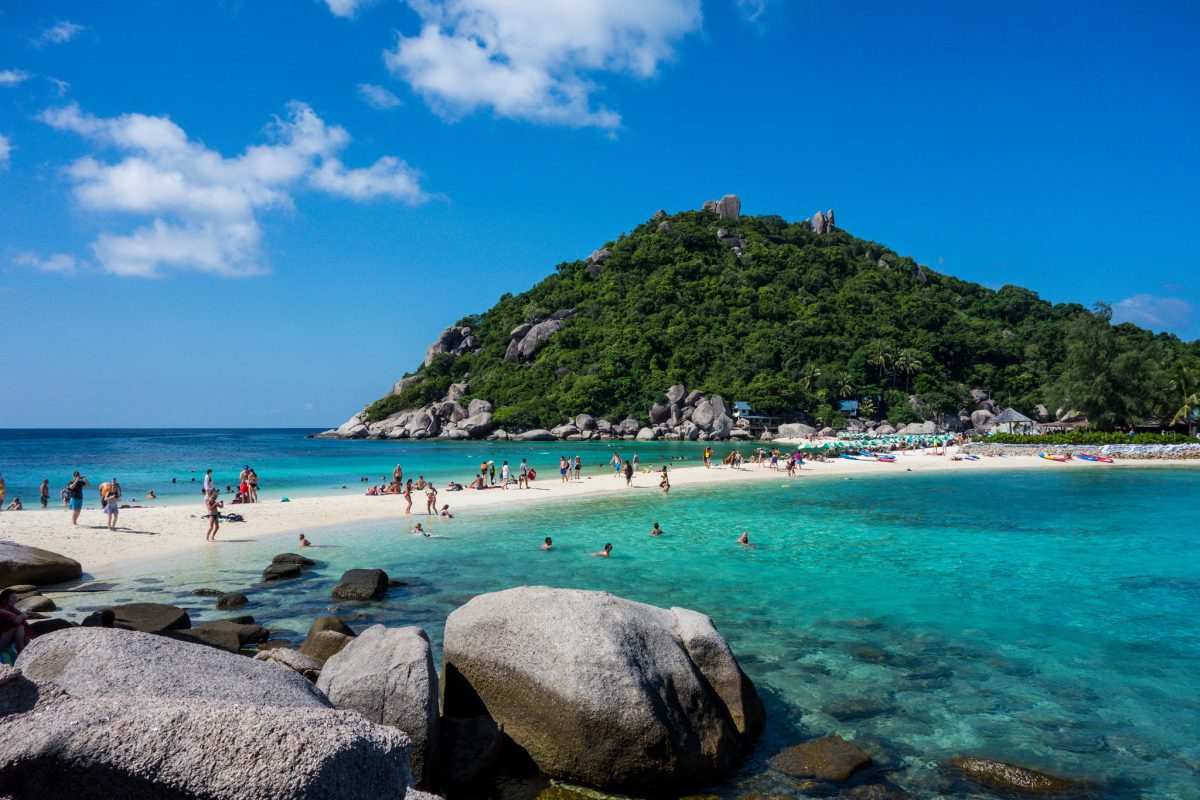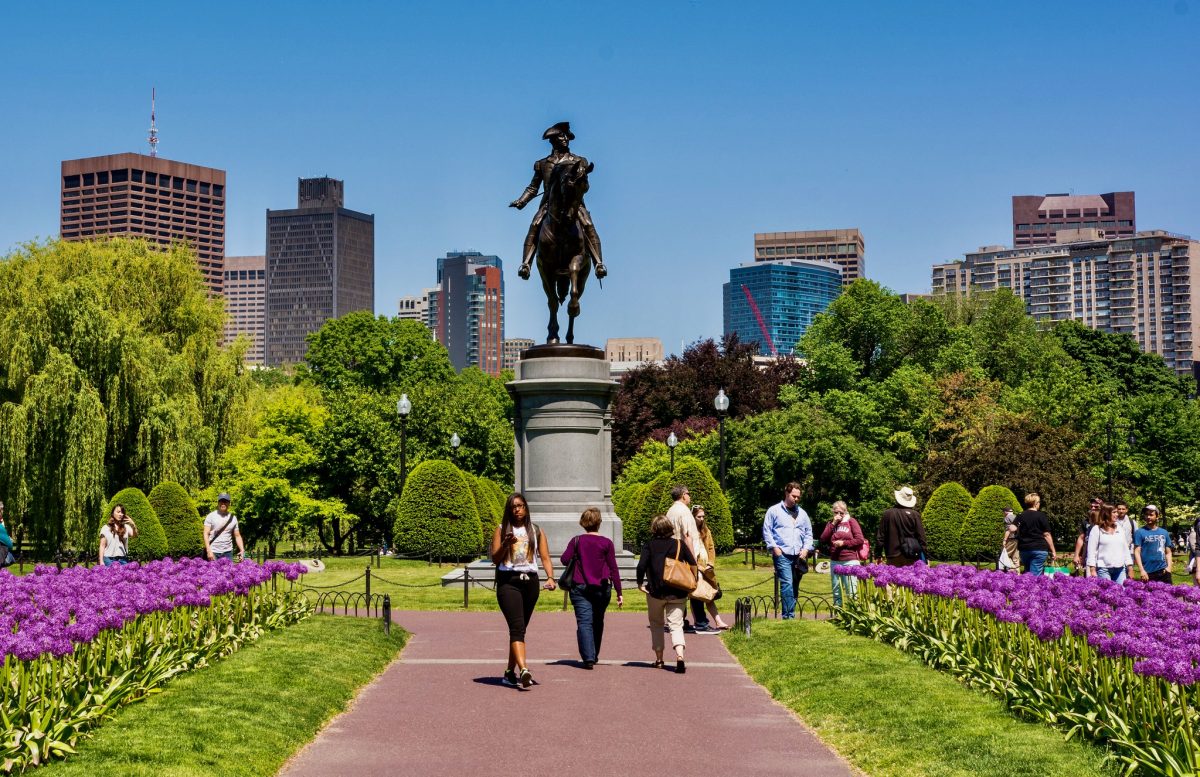Here's What Tourism Needs to Start Showing This Year

Skift Take
At the dawn of a new year, the travel industry is feeling buoyant. By all accounts and predictions, 2022 is poised to become the first year of a long-awaited, fuller global reopening. With travel roaring ahead with promise, putting aside a temporary Omicron variant setback, the industry has been patting itself on the back.
Hey, look — two years post-pandemic, society realizes the importance of this industry. Marketing campaigns are more diverse, showcasing travelers of color and immigrant communities where small businesses thrive. Hotels are labeled as sustainable on online booking platforms and flight emissions are indicated to help the discerning traveler. Tourism boards are marketing to their locals, and the industry is even coming together on climate action. How can the world not see travel as a necessary force for good moving forward? Cue the sustainability accolades, the “live like a local” marketing blitz and the merry go round of sustainability discussions among the usual industry suspects.
But the truth is the disconnect remains. Those affecting real change are in the minority, and economic recovery at all costs tops the list for executives following a pandemic. One does not have to look far to see that tourism is at risk of coming back as it was, in spite of all the promises of the past two years. There’s the return of mega-ships against the will of residents, the ongoing inertia on vaccine equity, the non-diverse boardrooms of the world's most valuable travel companies, and even mainstream media’s fixation on the one percent indulging in space tourism while the rest of the planet burns.
But here’s what the industry at large seems to not have grasped: travel’s comeback is unfolding amid a deeply and permanently altered world at the political and social levels. It isn’t just about the changed traveler or a changed tourism board dynamic, but a morphed society and collective mindset. One that demands transparency, action and a proven commitment to sustainability.
It means it’s a time for governments, destinations, and businesses to show, not tell: how will it no longer be business as usual as tourism numbers creep up higher and higher? How will tourism measure and demonstrate that tourism benefits the communities in the places in which it operates?
Time to Mainstream "Community-Based Tourism”
Overtourism has been discussed ad nauseum as the prime example for how far off course the industry had gone pre pandemic. But another staggering example has been around for even longer than that, and it’s the marketing of community-based tourism — experiences that are owned and led by a local community – as a niche product.
There is no tourism experience without the people and cultures that define and distinguish a place. How then is the community not the destination itself?
Panama ranks among the few destinations to have caught itself and grasped this rudimentary notion: community equals place and community is the future. Community is also what an increasing number of consumers will continue to seek — the data confirms it. While early to measure results, Panama’s process has involved collaborating with local and international non-profit organizations with a track record in community tourism to create a transparent selection process of an initial 10 host communities who are interested in tourism as an economic growth tool.
The Caribbean Tourism Organization also recently announced its plans to work with Planeterra to scale up communities’ integration into the tourism chain by providing training and support needed for them to begin offering their experiences.
Beyond scaling up, mainstreaming communities as rightful business players is the way tourism can correct course if this industry is to claim that it benefits locals. It will take political will and innovative leadership, but it will also require the private sector to step up in bigger ways than it has in the past.
Before any destination or business pats itself on the back, it will have to demonstrate how it is prioritizing communities as the primary beneficiaries of tourism.
The Future Lies in the Tourism Workforce
The tourism worker shortage conundrum that dominated headlines last year almost seems like an industrialized world problem. In the tourism-dependent Caribbean, for instance, the majority of hotel or restaurant workers came back to what would be considered low wage jobs in richer nations — but it’s also due to their lack of options and opportunity.
On the heels of a global pandemic, destinations where tourism is the dominant industry have continued to rely on outsider talent to fill leadership positions on their tourism boards and guide them through recovery. The foreign expert trained abroad cannot be faulted, if not the destination's leaders in failing to create access and inclusivity in the local pool, begging the question of how so many tourism dependent nations continue to lack homegrown executives for their most important and most lucrative industry.
As the future of travel stares us in the face, the question the industry players still need to answer is: how will they create an executive career track in tourism for those who have been historically marginalized, and thereby change the face of an industry that is generally seen as a sweatshop career? Bermuda’s recent campaign to build homegrown talent, for instance, offers promise.
But change will come when the industry at large gets beyond the surface of inclusive-washing by plastering diverse faces on marketing campaigns and works to create access for every opportunity that tourism brings.
An End to The Tourist-Is-King Narrative
As travel returns, there’s no doubt content creators will bounce back furiously along with the industry in the next three years. We will see larger numbers of influencers wielding their gimbals and searching for locations to Instagram or TikTok.
But how many will have shifted their approach to storytelling and how many will be rewarded for doing so? Social media narratives have had a detrimental effect on host communities and destinations, and are critical in the return of a more conscious way of travel. Will content creators decenter themselves — swap the yellow wall selfies for a historic site visit — and prioritize local voices and stories, leading the traveler in a non-intrusive manner?
Will more tourism boards be able to push for a conscious press trip model that celebrates a sense of place, respect for diversity and homegrown talent, rather than one that centers the “tourist is king” narrative?
Will the industry in low to middle income nations create a path for local content creators to thrive and equip them with the tools to become highly valued storytellers of their own culture on a global stage?
Measure and Show Tourism’s Benefits
Profit over people and planet has been the dominating modus operandi of global tourism, an industry that has been blamed for decimating cultures and commoditizing destinations to the point of causing mass exodus, rendering communities vulnerable or pushing them out of their own homes, rather than leading them to become upskilled and self-sufficient.
But it’s also an industry that has shown its ability to preserve nature, heritage and authenticity, and can empower host communities when it’s developed and managed in a sustainable manner.
Two years of pledging transformation and clinging to the mantra that tourism is “a force for good” have nearly passed. The time for bold leadership and action is here and now. Global tourism exists thanks to its host communities, and if it is to thrive for generations to come, then this industry must show and prove that it is building back better by backing those host communities and not short-changing them.
Measure, audit and demonstrate how tourism is redesigning the future to become more beneficial to host communities and more inclusive than it is extractive. Exude transparency, beyond certification labels. Publish your sustainability reports and spare our inboxes from some of the marketing ploys that reek of greenwashing. Last but not least, hold off on those pats on the back because this industry hasn’t earned them yet.




